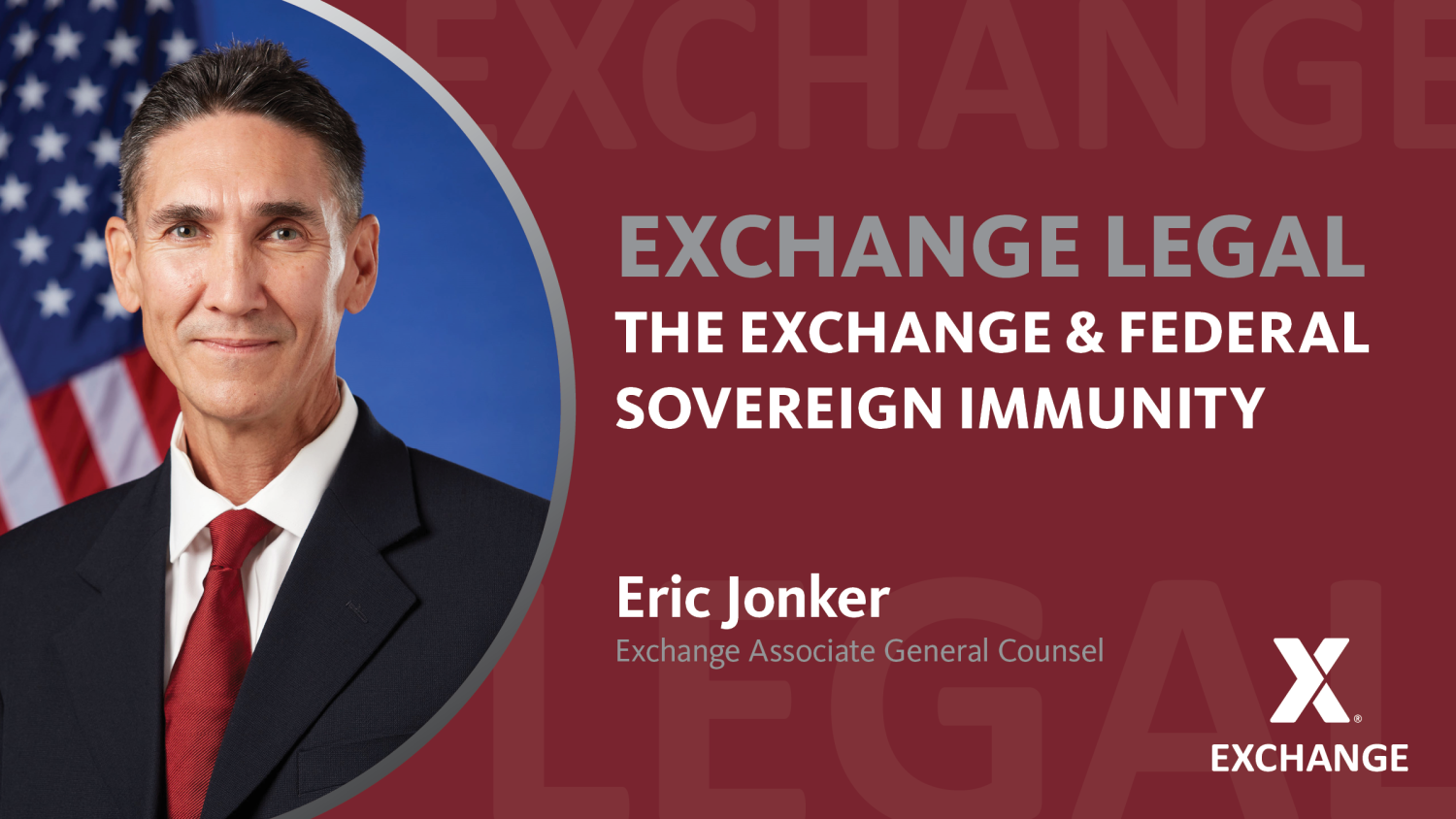What You Should Know About How Sovereign Immunity Applies to the Exchange

Have you ever heard of the saying “the king can do no wrong”? This ancient legal maxim refers to the English common-law principle of sovereign immunity and holds that the government cannot be sued without its consent. This legal tradition was passed down to the United States and allows federal and state governments to waive their sovereign immunity in some situations. The federal government did this when it passed the Federal Tort Claims Act, which waived federal immunity for numerous types of torts claims.
Does sovereign immunity apply to the Exchange? The short answer is yes. The Exchange is an instrumentality of the United States and is entitled to the immunities and privileges enjoyed by the federal government under the Constitution, federal statutes, federal legal precedents, established principles of international law, and international treaties and agreements.
As such, the Exchange is immune from direct state taxation and state laws and regulations that would interfere with the performance of its federal functions, except when specifically mandated by federal statute. For instance, Congress, through the Hayden-Cartwright Act, elected to waive the Exchange’s sovereign immunity regarding the collection of state taxes on gasoline and other fuels sold through exchanges on U.S. military or other reservations when such fuels are not for the exclusive use of the United States.
The act allowed states to tax consumer or private use or sale of gasoline or other motor fuels within federal areas, such as military installations or enclaves. If you have ever wondered why the price of gasoline or diesel is not significantly cheaper on base than off, it is likely because those New Deal taxes from the 1930s are still being collected to maintain our public roadways. Along these lines, the Clean Water Act and the Clean Air Act are other federal laws where Congress waived sovereign immunity.
Conversely, Congress has elected not to waive sovereign immunity under various consumer protection laws and the Feres Doctrine, which holds that service members who are injured during their military service cannot sue the federal government. Lastly, while Congress has the power to waive sovereign immunity in its entirety for federal bankruptcy matters, it has elected in some situations to limit applicability for equitable reasons. In sum, Congress makes decisions on when and how to apply sovereign immunity for a myriad of reasons – based often on a mix of trending political, policy and societal factors at play.
At the Exchange, the Office of the General Counsel (GC) was asked recently whether the Exchange must obtain a permit to transport alcohol in state or collect and submit concessionaire taxes to state authorities. In both instances, the answer was no. Consistent with the principles of federal sovereign immunity, there is longstanding federal statutory authority and federal case law that authorizes the Department of Defense to operate a worldwide system of exchange stores. Additionally, DoDI 1330.09, Armed Services Exchange Policy; DoDI 1330.21, Armed Services Exchange Regulations; and AR 215-8/DAFI 34-211(I), Army and Air Force Exchange Service Operations, clarify our operating policy and authorized sales activities.
There are many ways that federal sovereign immunity can come into play. Potentially, you may run across a situation where a state or local governmental authority is trying to infringe upon the Exchange’s right or authority to operate or sell goods or services. Whenever this happens, you should consider swiftly reaching out to GC for help. Sovereign immunity is a powerful tool and the Exchange will want to exercise its federal rights under this longstanding legal doctrine. More importantly, it is the Exchange constitutional duty to enforce it, consistent with our standing as an instrumentality of the U.S. government.


How does the policy of sovereign immunity apply when Exchange stores operate in foreign countries?
The principles of sovereign immunity are rooted in customary international law and generally protects countries and their officials from a range of legal proceedings in other countries’ domestic courts. When operating overseas, the Exchange is entitled to the immunities and privileges enjoyed by the United States via established principles of international law and international treaties & agreements. As applied, I would look to applicable multilateral, bilateral and other legal agreements that may apply to the Exchange wherever we are operating (for instance, in Germany or Kuwait) to see how sovereign immunity specifically applies to us.